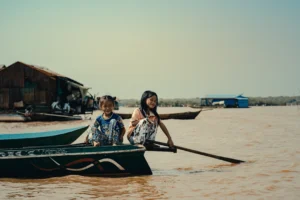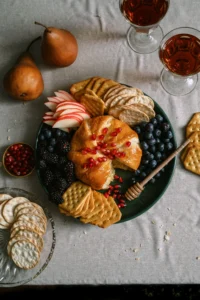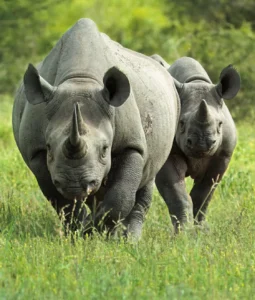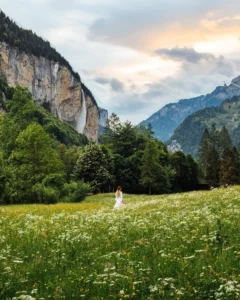
I’ve done all types of
Jenifer Bunnettphotography , but eventually it led to me doing my own thing over the last 15-18 years or so. I’ve become a specialist in seascapephotography , mostly long exposures.
You can also listen to this episode on iTunes, Pocket Casts, Spotify, Castbox, and Google Podcasts.
Our black & white

This week’s guest is Jenifer Bunnett, an award-winning seascape photographer with an outstanding portfolio. Jenifer’s father introduced her to
Jenifer and I talk about:
– Her upbringing and how her father’s passion for
– The therapeutic side of
– How she exhibits her work (and advice for anyone who’s interested in doing the same)
& much more!
When I first came across Jenifer’s work, I was in awe! Her images have a painterly feeling to them. I’m sure that you’ll enjoy looking at her work and listening to her story.
Here is a preview of our conversation with Jenifer Bunnett.

Q: What advice would you give to someone who wants to take outstanding long exposure photos?
Jenifer Bunnett: I think that the best advice I could give is to give yourself a chance to relax into it. Allow plenty of time. It’s not something you can rush. I tend to plan my days at the coast really carefully.
I’ve got a lot going on in my life in the background, stuff that isn’t related to
Then, I check the tides and weather forecast very carefully. I’m pretty sure that once I’ve made the effort to get out there, there’s a good chance that I might be able to get something. The tides are very important because some beaches don’t work at high tide, and some beaches don’t work at low tide. It’s a good idea to get to know your locations really well. Know what they’re going to look like given any tidal conditions.
Give yourself plenty of time to just relax into the shoot and not have anything that you’re worrying about in the background. Then you’ve got the best chance of coming home with something good at the end of the day. If you just say, “Well, I’ve got half an hour spare. I’ll just quickly pop down to the coast and see if I can grab something”, that almost never works. You need a lot of time to play around, read the conditions, and then experiment with exposure. Just see what’s going on: the weather conditions, how fast the water is moving, and things like that. The most important thing is to really give yourself time.

Q: What inspired you to start exhibiting your work?
Jenifer Bunnett: It’s a really special thing to do. I started doing it several years ago. I met a friend of mine called Rachael Talibart. We were both in the same place with our
We started shooting together. One day, we decided that it would be quite nice to exhibit, just to see our pictures in print, and to see what other people thought of them. So we had a little local exhibition in Woking, in a nice little gallery. It was a chance to print our pictures and learn about framing, pricing, limited editions…just a whole big learning curve, really. We were really interested in what people said about our work. We had a couple of times when we were there, chatting to the people who were looking at our work.
Then, we embarked on a project whereby we photographed the Basingstoke Canal workers, volunteers who keep the canals in good condition. They paint, repair, and get rid of invasive weeds. We bumped into one of them one day, had a little chat with them, and decided it would be an interesting project. We photographed them for about a year.
Once we finished that project, it coincided with the Basingstoke Canal’s 50th anniversary celebrations. They had an exhibition, so they used our pictures in that. It was another chance to exhibit, and we really got the bug after. Both of us have exhibited a lot since then. It’s a chance to evaluate your work, understand how people react to it, and see it in print.
I think every artist should do it, it’s a lovely thing to do.

Q: Now that you have your own children, do you find yourself encouraging them to take photographs the same way your father did?
Jenifer Bunnett: I’ve tried a little bit over the years. My children are young adults now. They’re not small anymore. I’d certainly encourage them to be as artistic as they possibly could be. I think creativity is a great outlet for your emotions, and watching their art develop over the years has always been interesting. It reflected their current interests and feelings or reactions to things. I think encouraging your children to be creative is essential for them and fascinating as a parent. I’ve still got all their sketchbooks filled up.
When I was a child, my dad had the studio. I used to go to there after school and help with the printing and processing. For my children, it was a little bit different because I didn’t have a studio. In fact, once I had the children, I stopped working in London and just became a full-time mum for a few years. I didn’t feel I could do the job properly unless I did it that way.

They didn’t have a studio to go to, but I’ve certainly put cameras in their hands and taken them out with me on shoots. None of them have become besotted with it the way I have, yet. Having said that, I didn’t really become besotted with it until they were old enough for me to be able to decide I was going to get back into my art again. While I did help my dad a lot, and he certainly guided me a huge amount – I probably learned more from him in his studio than I learned about
Maybe my children will decide they’re going to become photographers. Maybe they won’t. One of my sons in particular is the most likely. He’s very creative. At the moment, they’re all doing something completely different. So who knows? I do agree that creativity for children is absolutely essential and isn’t encouraged enough, especially in secondary schools.









